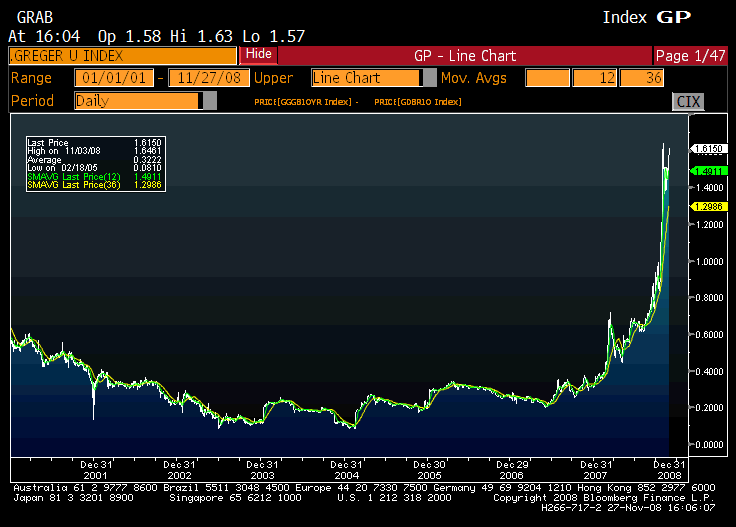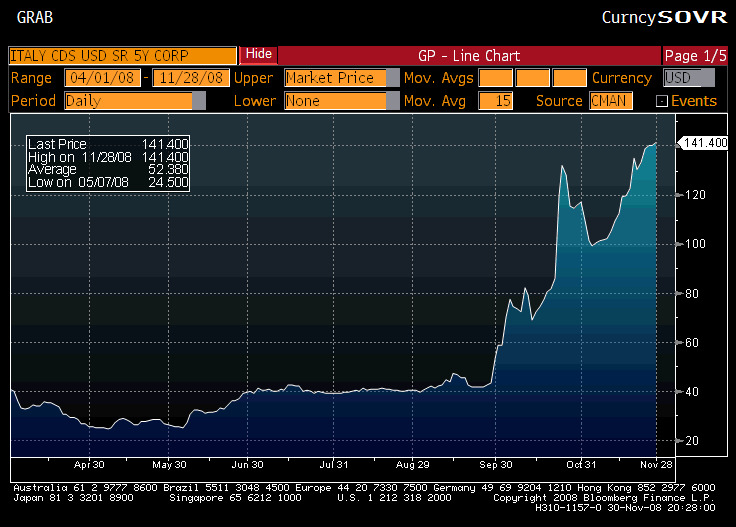Back in the exciting days of October, Peter, Simon, and I wrote an op-ed in The Guardian about the potential for cracks to appear in the Eurozone, even possibly leading to one or more countries withdrawing from the euro. With so many other things to worry about, this scenario didn’t get a lot of attention. Since then, pressures have been slowly building. For example, the spread between the 10-year bonds of Greece and Germany has grown from around 30 basis points during most of the decade to over 1.5% now. (The picture below is from last week.)

According to an FT chart (sorry, can’t find the link), Greece also has to raise 20.3% of its GDP in debt next year (the equivalent figure for the U.S. is 10.3%), so the spread should only get bigger.
The Eurozone is based on the idea that a single monetary policy can serve the interests of all of the member countries. The problem is that when macroeconomic conditions vary widely between countries, they will have different interests. In a severe crisis, some countries may be tempted to (a) engage in quantitative easing (of the sort the Fed is beginning to do) or (b) implement a large fiscal stimulus (of the sort that Pelosi, Reid, and Obama are about to do). (a) is impossible for a Eurozone member, and (b) is constrained by limits on deficit spending, although I believe those limits are honored more in the breach than in practice.
In any case, the potential problems are getting big enough that Martin Feldstein has weighed in as well. Hopefully this will draw more attention to the issue. It may still be a low probability, but the economic and political consequences of undoing the greatest step toward European integration in, oh, the last thousand years would be huge.

